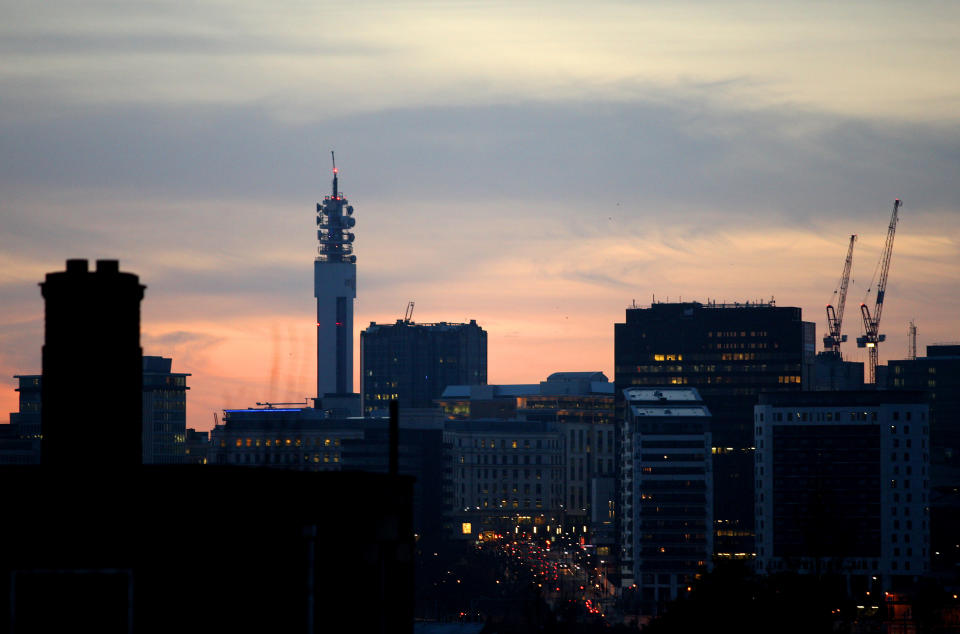Coronavirus 'will wipe 15% off UK GDP' in the next quarter

The UK faces its deepest recession since the financial crisis and soaring unemployment as firms take a hammering from the coronavirus, a think tank has warned.
The total output of Britain’s goods and services will plummet by 15% between the first and second quarters of 2020, according to new analysis by the Centre for Business and Economic Research (CEBR).
It would mark the steepest quarter-on-quarter decline since comparable records began in 1997.
Demand for many goods and services has nosedived as the UK has adopted social distancing and gone into unprecedented lockdown, with curbs on “non-essential” shops and travel.
READ MORE: Coronavirus sends UK’s record jobs boom into reverse
Many firms a face long spell without work and are slashing staff, despite government schemes and emergency interest rate cuts aimed at keeping them afloat and saving jobs.
The unemployment rate is predicted to soar to 7% by the third quarter, the highest since 2014, with employers shedding staff and freezing hiring.
Separate research by Nomura suggests an even more severe economic toll, forecasting joblessness could more than double to 8%. That would mean 1.4 million more people out of work, taking the total to almost 2.8 million.
Official figures show the current unemployment rate, based on the most recently available data for the three months to January, is 3.9%, a near-record low. But benefit applications have soared in recent weeks.
READ MORE: Low-paid women’s jobs leave them most at risk from COVID-19
The CEBR predicts household consumption will also crash by 15% in the second quarter, with spending slashed as more workers lose their jobs and retailers close their doors.
House prices are expected to “fall sharply,” and be 13% lower in January 2021 than the January just gone.
Overall economic growth is expected to slide 4% in 2020 compared to 2019, with a “sharp bounce back” in the second half of the year partially offsetting the damage.
“Our central assumption is that restrictions on businesses and the wider populations will be loosened by the third quarter as testing becomes more widely available,” CEBR researchers wrote.

 Yahoo News
Yahoo News 